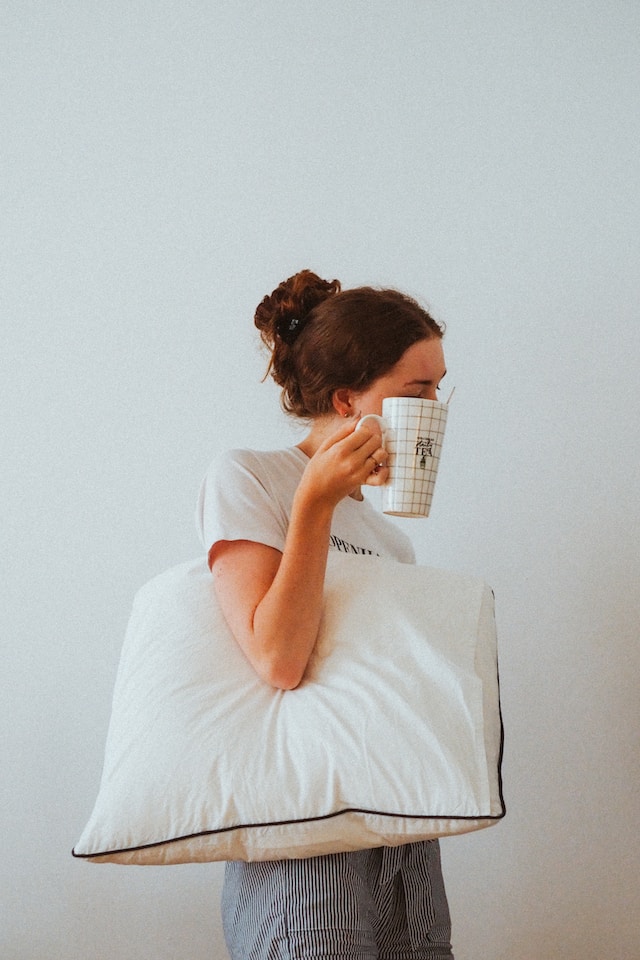
Diving into the world of sleep, we uncover its critical role in nurturing our health and wellness. Sleep is more than just a nightly habit; it’s a cornerstone of our overall health. During those quiet hours of slumber, your body engages in essential repair and rejuvenation activities. This is when your brain processes the day, cements memories, and recharges for the adventures that await.
Beyond mental rejuvenation, sleep profoundly influences our physical health. It is a key player in regulating vital functions like metabolism, immune response, and heart health. The quality of your sleep can dramatically shape your daily life, influencing your mood, energy levels, and overall well-being. Realising the pivotal role of sleep is your gateway to enhancing your nightly routine. Let’s embark on this journey to unlock the secrets of a good night’s sleep together.
The Role Of Technology In Sleep
The influence of technology on your sleep is a topic worth exploring. While certain technological tools can enhance the quality of your rest, others might inadvertently disrupt it. The key lies in understanding how to balance these effects for a healthier sleep pattern.
Devices like smartphones and tablets emit blue light, which can interfere with your sleep by suppressing the production of melatonin, a hormone that signals your body it’s time to sleep. Reducing screen time before bed, or using features that minimise blue light, can be beneficial.
On the other hand, there are various apps and gadgets designed to monitor and improve sleep quality. These can track your sleep patterns, provide relaxing sounds, or even create an ideal sleeping environment through smart home technology. The challenge is to use technology wisely. Incorporating tech that aids your sleep, while being mindful of its potential to disturb, can help you achieve the right balance for a good night’s rest.
Tackling Short-Term Insomnia
When you’re grappling with short-term insomnia, it’s essential to know when medication might be a helpful option. While natural methods and adjustments in lifestyle are typically the go-to solutions, there are instances where medication could be beneficial. It’s important to understand this option’s role in your sleep health. At Chemist4U, you can learn more about the causes of insomnia and the various different types of insomnia in their guide and get medication to help you treat your sleep loss.
View medication for insomnia as a short-term aid rather than a long-standing solution. It can come in handy for temporary disruptions in your sleep pattern, such as adapting to a new time zone, dealing with sudden stress, or overcoming a brief period of sleeplessness. However, it’s vital to use these medications cautiously and under medical advice, as they can bring side effects and potential dependency risks.
Keep in mind that medication is just a part of a larger strategy. It works best when combined with healthy sleep habits and techniques to reduce stress. When contemplating medication, always weigh it as part of an overall plan for improving your sleep health.
Simple Steps For Better Sleep
A well-thought-out pre-sleep ritual can be your secret to a restful night. This routine is like a gentle nudge to your body, letting it know it’s time to slow down and get ready for sleep. By sticking to a set of calming activities each night, you can significantly improve your sleep quality.
Begin by picking activities that soothe you. This could be anything from losing yourself in a good book, enjoying a warm bath, or unwinding to some soft music. These activities should be all about relaxation, easing the transition from the day’s buzz to a more peaceful state.
It’s best to steer clear of things that rev up your energy like vigorous exercise or work tasks before bed. These can leave you too alert to sleep. Also, remember to cut down on screen time in the evening, as the blue light from gadgets can interfere with your sleep cycle. Sticking to the same bedtime and routine every night is crucial. It helps reinforce your body’s natural sleep rhythm, making it easier for you to nod off and wake up feeling rejuvenated.
Relaxation Techniques For Easing Into a Peaceful Slumber
Mastering relaxation techniques can be a game-changer for your sleep quality. These methods are designed to calm your mind and body, making it easier to drift off into a peaceful night’s sleep. Integrating these into your evening routine can help you unwind and prepare for rest.
Consider trying deep breathing exercises, which involve slow, deliberate breaths that help reduce stress and relax your body. Guided imagery, where you visualise a calming scene or memory, can also be effective in easing your mind into a state of relaxation. Progressive muscle relaxation is another technique worth exploring. It involves tensing and then relaxing different muscle groups in your body, which can reduce physical tension and promote a sense of calm.
Yoga or gentle stretching exercises can also be beneficial. These activities not only relax the muscles but also help clear the mind, creating the perfect condition for a good night’s sleep. Incorporating these relaxation techniques into your nightly routine can make a significant difference in the quality of your rest, helping you to wake up refreshed and ready for the day ahead.
Enhancing your sleep routine is a vital step towards better health and well-being. By incorporating these tips and techniques into your nightly ritual, you can transform the quality of your rest. Remember, a good night’s sleep is within your reach, paving the way for brighter, more energetic days.
© Copyright 2024 Antonia, All rights Reserved. Written For: Tidylife


Leave a Reply